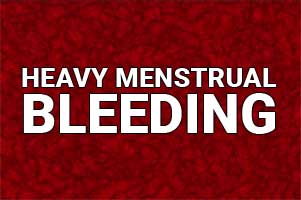- Home
- Editorial
- News
- Practice Guidelines
- Anesthesiology Guidelines
- Cancer Guidelines
- Cardiac Sciences Guidelines
- Critical Care Guidelines
- Dentistry Guidelines
- Dermatology Guidelines
- Diabetes and Endo Guidelines
- Diagnostics Guidelines
- ENT Guidelines
- Featured Practice Guidelines
- Gastroenterology Guidelines
- Geriatrics Guidelines
- Medicine Guidelines
- Nephrology Guidelines
- Neurosciences Guidelines
- Obs and Gynae Guidelines
- Ophthalmology Guidelines
- Orthopaedics Guidelines
- Paediatrics Guidelines
- Psychiatry Guidelines
- Pulmonology Guidelines
- Radiology Guidelines
- Surgery Guidelines
- Urology Guidelines
Levonorgestrel 52mg IUS insertion rapidly reduces Menorrhagia in women

USA: Women reporting heavy menstrual bleeding (HMB), when administered with levonorgestrel 52mg intrauterine system (IUS), experienced significant and rapid improvement in their condition, according to a recent study in the American Journal of Obstetrics and Gynecology. This may prevent the need for surgical treatment of HMB.
Menorrhagia is the medical term for menstrual periods with abnormally heavy or prolonged bleeding. HMB is not normal as it can disrupt life and maybe a sign of a more serious health problem. About one-third of women seek treatment for heavy menstrual bleeding which is when any of the following is present:
- Bleeding that lasts more than 7 days.
- Bleeding that soaks through one or more tampons or pads every hour for several hours in a row.
- Needing to wear more than one pad at a time to control menstrual flow.
- Needing to change pads or tampons during the night.
- Menstrual flow with blood clots that are as big as a quarter or larger.
The levonorgestrel 52mg IUS has proven efficacy for HMB treatment in clinical trials, but little data exists to demonstrate how rapidly the effects occur and effects in women with self-reported heavy bleeding as seen commonly in clinical practice. Mitchell D. Creinin, University of California, Davis, Sacramento, CA, and colleagues evaluated changes in bleeding patterns in women with self-reported HMB before levonorgestrel 52mg IUS insertion.
In this study, 1,714 women aged 16-45 years received a levonorgestrel 52mg IUS in a multicenter trial evaluating contraceptive efficacy and safety for up to 10 years. At the screening, participants described their baseline menstrual bleeding patterns for the prior 3 months. Participants completed daily diaries with a subjective evaluation of bleeding information for the first 2 years.
For this analysis, the researchers included 1513 women with at least one complete 28-day cycle of IUS use and excluded women using a hormonal or copper intrauterine contraception in the month before study enrollment. They evaluated changes in menstrual bleeding and discontinuation for bleeding complaints per 28-day cycle over 26 cycles (2 years) in women who self-reported their baseline pattern as heavy. They also compared rates of amenorrhea -- defined as no bleeding or spotting -- within the entire study population in women with subjective HMB at baseline compared to those who did not complain of HMB.
Read Also: Linzagolix helps reduce heavy menstrual bleeding in uterine fibroids: PRIMROSE 2 study
Key findings of the study include:
- Of the 1513 women in this analysis, 150 (9.9%) reported baseline HMB.
- The majority of women reported no longer experiencing HMB by the end of cycle 1 (112/150, 74.7%) with even higher rates by cycle 2, (124/148, 83.8%).
- At the end of cycles 6, 13 and 26, 129/140 (92.1%), 114/123 (92.7%) and 100/103 (97.1%) women reported no HMB, respectively.
- After cycles 13 and 26, 63/123 (51.2%) and 66/103 (64.1%), respectively, reported their bleeding as amenorrhea or spotting only.
- A lower proportion of women with baseline self-reported HMB reported amenorrhea as compared to women in the overall study cohort without HMB at the end of 6 cycles (319 [25.5%] vs. 21 [15.0%]) and 13 cycles (382 [34.4%] vs. 26 [21.1%]); differences were not significant after 19 cycles (367 [37.2%] vs. 36 [31.0%]) and 26 cycles (383 [43.5%] vs. 38 [36.9%]).
- Only 4 (2.7%) women with baseline HMB discontinued for bleeding complaints (2 for HMB and 2 for irregular bleeding), all within the first year.
Read Also: For heavy menstrual bleeding laparoscopic hysterectomy superior to endometrial ablation: Lancet
"Most women who self-report HMB experience significant improvement quickly after levonorgestrel 52mg IUS insertion. Discontinuation for bleeding complaints among women with baseline HMB is very low," concluded the authors.
The study, "Bleeding changes after levonorgestrel 52mg intrauterine system insertion for contraception in women with self-reported heavy menstrual bleeding," is published in the American Journal of Obstetrics and Gynecology (AJOG).

Disclaimer: This site is primarily intended for healthcare professionals. Any content/information on this website does not replace the advice of medical and/or health professionals and should not be construed as medical/diagnostic advice/endorsement or prescription. Use of this site is subject to our terms of use, privacy policy, advertisement policy. © 2020 Minerva Medical Treatment Pvt Ltd